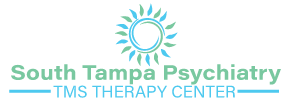 Drug abuse and the opioid epidemic causes many devastating side effects for individuals and their families. The medication-assisted treatment or MAT program at South Tampa Psychiatry provides additional support to those struggling with a substance use disorder. Adding this to your recovery plan strengthens recovery by discouraging continued drug use.
Drug abuse and the opioid epidemic causes many devastating side effects for individuals and their families. The medication-assisted treatment or MAT program at South Tampa Psychiatry provides additional support to those struggling with a substance use disorder. Adding this to your recovery plan strengthens recovery by discouraging continued drug use.
Find all we have to offer to support your sobriety through substance abuse treatment programs in South Tampa.
What Is Medication-Assisted Treatment?
Programs that use medications in combination with counseling and behavior therapies are referred to as medication-assisted treatment (MAT). MAT programs generally use medication to treat those with addictions, like opioid use disorders. The medications used to curb drug cravings and reduce the risk of relapse.
Medication-assisted treatment focuses on providing relief for the whole patient. Therefore, they also are useful in those with dual diagnosis, or a co-occurring mental illness. A holistic perspective helps those with a substance use disorder sustain recovery.
Medications used to treat substance abuse are FDA-approved and closely monitored. Addiction is a chronic disease and the continued participation in a MAT program is re-evaluated periodically. Monitoring and re-evaluations make sure those suffering from addiction are still in the right care program.
Common Medications Used
There are a few medications found most effective in treating opioid abuse. Depending on the individual’s situation, the following can be used:
- Methadone – a full agonist that blocks the euphoric effects of opiates
- Suboxone – a partial agonist that reduces physical symptoms and decreases cravings
- Vivitrol (naltrexone) – an antagonist to relieve cravings and prevent overdose
These medications provide relief from common opioid withdrawal symptoms, including irritability, cramps, and headaches. However, there are many more benefits to these common medications used in MAT programs.
Call 866.273.5017 to talk to a specialist today about the MAT program. We closely monitor all prescriptions and drugs administered to reduce symptoms of addiction.
Benefits of a MAT Program
Medication-assisted treatment benefits those experiencing physical and psychological withdrawal symptoms. Medications are used to lessen painful and uncomfortable withdrawal symptoms as well as reduce cravings.
Medications used to treat addiction come in many different forms and strengths. Commonly they are taken as either a pill or by injection. There are also types of medications that provide relief for an extended amount of time, for example, taking a dose once a month.
Participation in a MAT program can save lives. By taking away the euphoric feeling from drugs, it lessens the appeal and ability to escape. The use of naltrexone will even prevent overdose if relapse does occur.
Benefits of MAT programs include:
- Lowers criminal activity
- Relieves withdrawal symptoms
- Decreases the transmission of infectious diseases
- Improves the health of infants born to those with addiction symptoms
- Decreases overdose rates from opioid abuse
Even with medication, persistent symptoms of mental health disorders can still occur. When this happens, TMS therapy for depression, anxiety, or substance abuse is used in tandem with MAT for best results. With the right combination of programs, individuals are able to lead healthy, sober lives.
Mental Health Treatment at South Tampa Psychiatry
The symptoms of mental health disorders don’t have to wreak havoc on your life and your loved ones. The top psychiatrists at South Tampa Psychiatry provide a variety of programs for mental health treatment. Get the help you need through any of the following programs:
- Dual diagnosis treatment
- Anxiety Treatment programs
- Depression treatment programs
- Bipolar disorder treatment programs
- Substance abuse treatment programs
For more information about substance abuse and mental health treatment programs in South Tampa, call 866.273.5017. Contact South Tampa Psychiatry today about our MAT program for those with addiction and mental health disorders.
